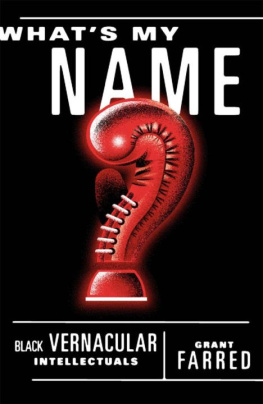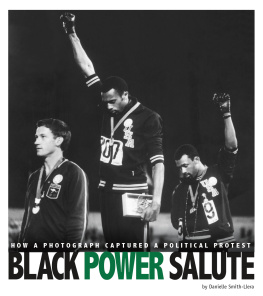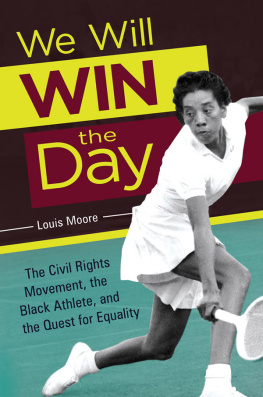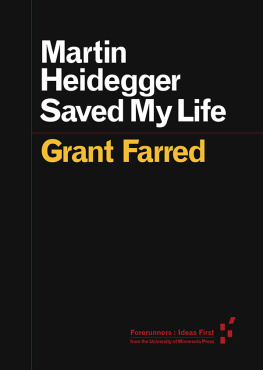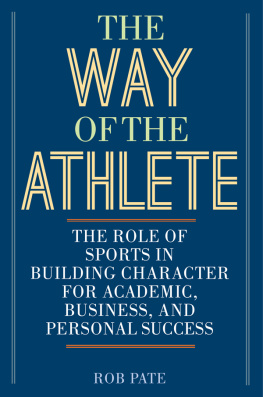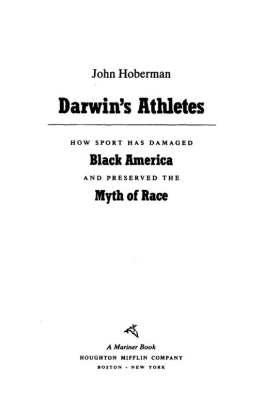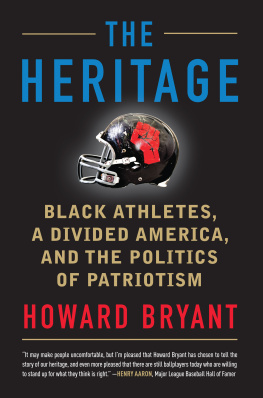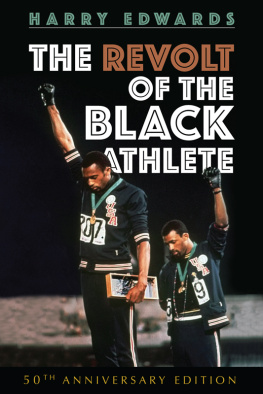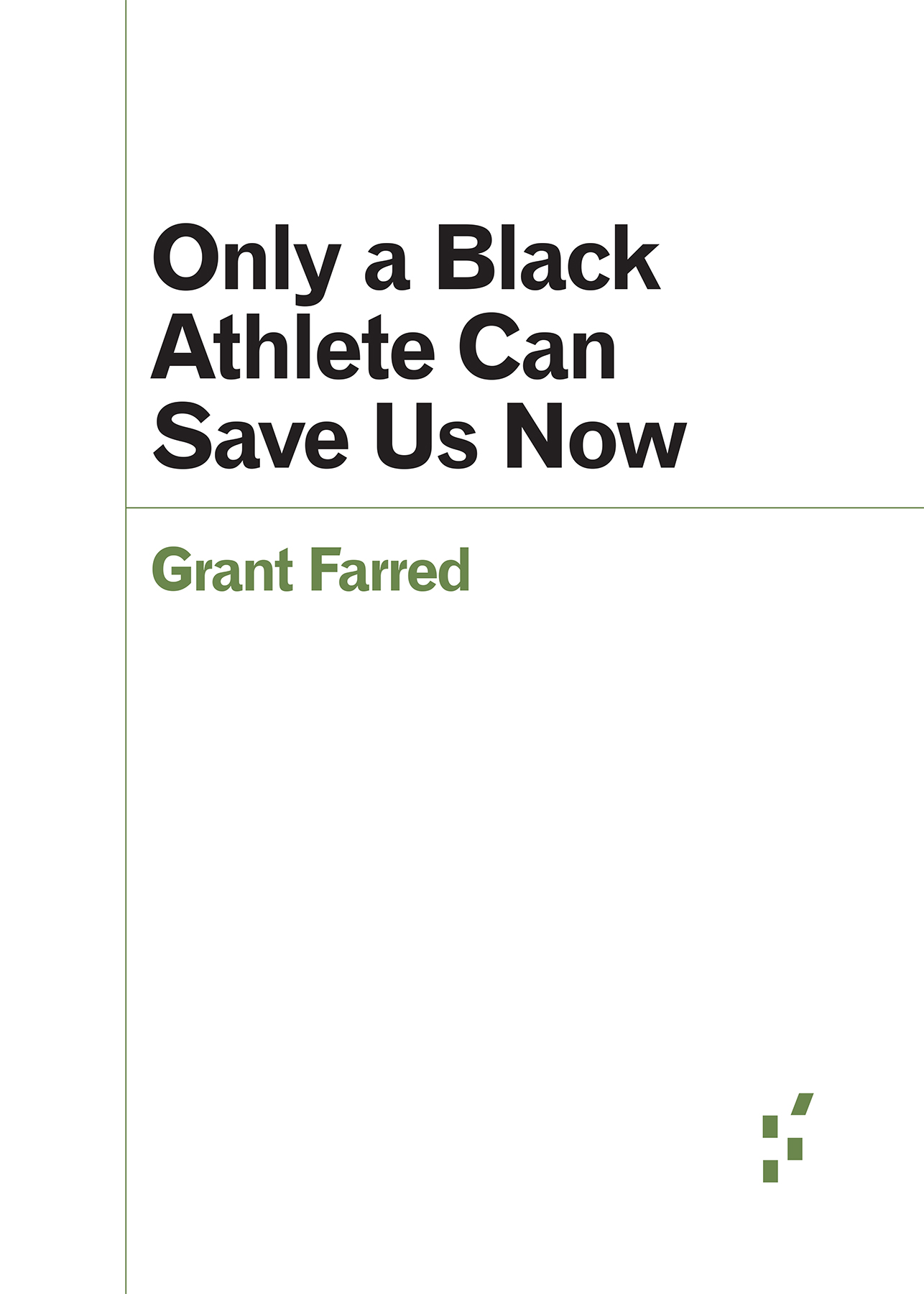
Only a Black Athlete Can Save Us Now
Forerunners: Ideas First
Short books of thought-in-process scholarship, where intense analysis, questioning, and speculation take the lead
From the University of Minnesota Press
Grant Farred
Only a Black Athlete Can Save Us Now
Anna Watkins Fisher
Safety Orange
Heather Warren-Crow and Andrea Jonsson
Young-Girls in Echoland: #Theorizing Tiqqun
Joshua Schuster and Derek Woods
Calamity Theory: Three Critiques of Existential Risk
Daniel Bertrand Monk and Andrew Herscher
The Global Shelter Imaginary: IKEA Humanitarianism and Rightless Relief
Catherine Liu
Virtue Hoarders: The Case against the Professional Managerial Class
Christopher Schaberg
Grounded: Perpetual Flight... and Then the Pandemic
Marquis Bey
The Problem of the Negro as a Problem for Gender
Cristina Beltrn
Cruelty as Citizenship: How Migrant Suffering Sustains White Democracy
Hil Malatino
Trans Care
Sarah Juliet Lauro
Kill the Overseer! The Gamification of Slave Resistance
Alexis L. Boylan, Anna Mae Duane, Michael Gill, and Barbara Gurr
Furious Feminisms: Alternate Routes on Mad Max: Fury Road
Ian G. R. Shaw and Marv Waterstone
Wageless Life: A Manifesto for a Future beyond Capitalism
Claudia Milian
LatinX
Aaron Jaffe
Spoiler Alert: A Critical Guide
Don Ihde
Medical Technics
Jonathan Beecher Field
Town Hall Meetings and the Death of Deliberation
Jennifer Gabrys
How to Do Things with Sensors
Naa Oyo A. Kwate
Burgers in Blackface: Anti-Black Restaurants Then and Now
Arne De Boever
Against Aesthetic Exceptionalism
Steve Mentz
Break Up the Anthropocene
John Protevi
Edges of the State
Matthew J. Wolf-Meyer
Theory for the World to Come: Speculative Fiction and Apocalyptic Anthropology
Nicholas Tampio
Learning versus the Common Core
Kathryn Yusoff
A Billion Black Anthropocenes or None
Kenneth J. Saltman
The Swindle of Innovative Educational Finance
Ginger Nolan
The Neocolonialism of the Global Village
Joanna Zylinska
The End of Man: A Feminist Counterapocalypse
Robert Rosenberger
Callous Objects: Designs against the Homeless
William E. Connolly
Aspirational Fascism: The Struggle for Multifaceted Democracy under Trumpism
Chuck Rybak
UW Struggle: When a State Attacks Its University
Clare Birchall
Shareveillance: The Dangers of Openly Sharing and Covertly Collecting Data
la paperson
A Third University Is Possible
Kelly Oliver
Carceral Humanitarianism: Logics of Refugee Detention
P. David Marshall
The Celebrity Persona Pandemic
Davide Panagia
Ten Theses for an Aesthetics of Politics
David Golumbia
The Politics of Bitcoin: Software as Right-Wing Extremism
Sohail Daulatzai
Fifty Years of The Battle of Algiers: Past as Prologue
Gary Hall
The Uberfication of the University
Mark Jarzombek
Digital Stockholm Syndrome in the Post-Ontological Age
N. Adriana Knouf
How Noise Matters to Finance
Andrew Culp
Dark Deleuze
Akira Mizuta Lippit
Cinema without Reflection: Jacques Derridas Echopoiesis and Narcissism Adrift
Sharon Sliwinski
Mandelas Dark Years: A Political Theory of Dreaming
Grant Farred
Martin Heidegger Saved My Life
Ian Bogost
The Geeks Chihuahua: Living with Apple
Shannon Mattern
Deep Mapping the Media City
Steven Shaviro
No Speed Limit: Three Essays on Accelerationism
Jussi Parikka
The Anthrobscene
Reinhold Martin
Mediators: Aesthetics, Politics, and the City
John Hartigan Jr.
Aesops Anthropology: A Multispecies Approach
Only a Black Athlete Can Save Us Now
Grant Farred
University of Minnesota Press
Minneapolis
London
Copyright 2022 by Grant Farred
All rights reserved. No part of this publication may be reproduced, stored in a retrieval system, or transmitted, in any form or by any means, electronic, mechanical, photocopying, recording, or otherwise, without the prior written permission of the publisher.
ISBN 978-1-5179-1337-3 (PB)
ISBN 978-1-4529-6716-5 (Ebook)
ISBN 978-1-4529-6742-4 (Manifold)
Published by the University of Minnesota Press
111 Third Avenue South, Suite 290
Minneapolis, MN 55401-2520
http://www.upress.umn.edu

Available as a Manifold edition at manifold.umn.edu
The University of Minnesota is an equal-opportunity educator and employer.
To Ian Balfour: Raptors partisan, Expos loyalist, music aficionado, and possessor of a truly capacious mind
Contents
O NLY A B LACK A THLETE C AN S AVE U S N OW is an essay that should come with a warning label. One that reads Misleading Title. Or, maybe, if one were generous, Slightly Misleading Title. The dissembling assumes an even-more serious aspect because, as will be seen momentarily, this essay is addressed to my son, Ezra, himself an aspiringsoon-to-be teenblack athlete.
However, the ambivalence about the title derives from an obtrusive recognition. That is, this essay is as much an acknowledgement of the important role played by athletes, and black athletes in particular, during the Covid-19 pandemic and the racist violence that markedand marred2020, as it is an articulation of the limits of what these athletes can do. Indeed, in some of its more reflective moments, this essay offers a pointed critique of what it is that these athletes do. And, by extension, what it is that they fail to dowhat they cannot do.
However, much as this essay is in a dialectical struggle with itself about the role of the black athlete in a moment of historic crisis, Only a Black Athlete Can Save Us Now undertakes this work toward a very specific end. On the one hand, this essay recognizes the importance of the athletes reformist tendencies and objectives. Some of the athletes undertaking are more urgent than others. In truth, some are even radical. Most prominent among these is the campaign to end police violence (a stand that constitutes arguably the key moment in this essay), a movement fundamental to simply keeping black Americans alive. The events of George Floyd (killed by a police officers knee, Minneapolis, 2020), Lt. Caron Lazario (a uniformed U.S. Army officer pepper sprayed by a police officer, Virginia, 2021), Daunte Wright (Brooklyn Center, Minnesota, 2021, shot by a police officer, Kim Potter) A historic enactment for a state still living with the aftermath of the 2015 death of Freddie Gray, a black man, at the hands of Baltimore police officers.
On the other hand, Only A Black Athlete Can Save Us Now is impatient with the reformist discourse as advocated by these athletes, impatient because this movement is so deeply attached to the political. This essay argues against representative politics, not only as it constitutes the entire horizon of possibility, but because representative politics has come to stand as a, or the, democratic end in itself. That is, democracy has come to meanhas long since meantsecuring the franchise, legally guaranteeing it and ensuring that it is freely practiced. Democracy so understood follows the logic that the state is in need of drastic overhaul, rather than working to ensure that the state will wither away, as Marx hoped. All the while representative democracy maintains the system of late-capitalism, espousing the language of (securing) opportunity for all rather than organizing for the systematic dismantling of the state and late-capitalism so that a different future might be imagined. Politics, so conceived, constitutes the very ground of reformism in our moment.
Next page

